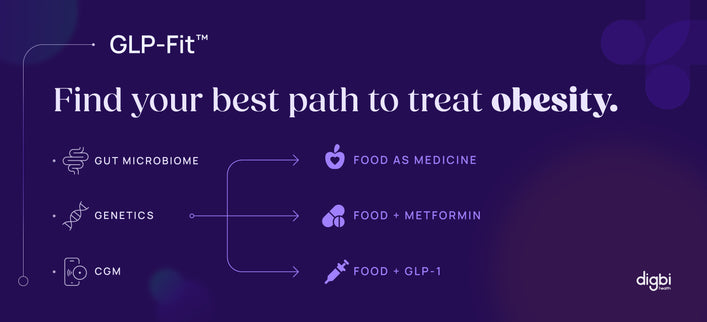Your gut does a lot more than digest food - it’s responsible for, and affects, your overall health and well being to a huge extent, from regulating your mood and hormones to nutrient absorption and metabolic function.
The thyroid is a gland that is part of your endocrine system which secretes hormones that affect your heart, metabolic rate, hormonal health, and respiration.
Each organ influences the other — and when they are off-balance, you may be at an increased risk for thyroid disorders.
The Thyroid and Gut Health Connection
A healthy gut microbiome not only has beneficial effects on the activity of the immune system, but also on thyroid function. A 2018 study indicates that patients with Hashimoto’s Disease suffer from “microbial dysbiosis,” or an imbalance in the gut microbiome, which worsens the condition. Hashimoto’s thyroiditis is an autoimmune disease where your immune system doesn’t recognize your thyroid as your own and begins attacking it, causing a host of problems, from brain fog and fatigue to weight gain and an irregular menstrual cycle.)
Microbial dysbiosis (gut microbiome imbalances) doesn’t just trigger Hashimoto’s, but other thyroid disorders like Graves’ Disease, Celiac Disease and Non-Celiac Wheat Sensitivity.
A balanced thyroid-gut axis helps decrease the risk of thyroid disorders. Here’s 4 ways how:
-
Immunity:
A large part of your immune system can be found in your gut, along the digestive tract/lining. This particular section of your immune system is called the GALT or gut-associated lymphoid tissue. These tissues store immune cells that produce antibodies and protect your body from foreign invaders. A gut that’s in a poor state of health can hamper thyroid immune function — but when the thyroid-gut axis is in sync, your immune system does what it needs to and doesn’t go into overdrive or an inflammatory state (which is what leads to thyroid-related autoimmune disorders). -
Nutrient absorption and synthesis:
The gut microbiome influences the absorption of vitamins and minerals that are important to maintain the thyroid gland, such as iodine, selenium, zinc, and iron. Each of these minerals are important for thyroid function, and there is a link between thyroid dysfunction and a lack or imbalance in mineral levels. Intestinal bacteria also play a role in vitamin synthesis (for vitamin K, folic acid, vitamin B2, B3, B5, B6, B7, and B12) which are important for a healthy thyroid. -
Digestion:
Digestion and regular bowel movements can be affected by low thyroid hormone levels. An impaired thyroid function can cause disorders like constipation, which, apart from being uncomfortable, can lead to unstable estrogen levels, fertility issues and sudden menopausal symptoms. When all is well with the gut health and thyroid axis, digestion is smoother. -
Stress:
The thyroid-gut axis also helps combat stress and stress-related disorders. Stress causes our bodies to release excess amounts of cortisol, also known as the stress hormone. Higher levels of cortisol result in lower levels of active thyroid hormones. When your gut microbiome is off-balance, higher levels of cortisol circulate through your system, causing your thyroid to react negatively. So a happy gut = happy thyroid = happy you! -
The Wrap:
Improving Gut and Thyroid Health through Digbi Health To decrease the risk of thyroid disorders — and for better thyroid health — you have to heal your gut. But since the gut and thyroid are closely linked, you need to manage both simultaneously, which requires a multifaceted approach with a gut health solution that is tailored to your sensitivities.Each of us are unique and there is no one-size-fits all approach to healing and managing gut health and thyroid. There are certain steps you can take, like switching up your diet — which requires a thorough analysis, since your gut microbiome is influenced by genetics, making it unique to you.
Digbi simplifies the process and helps you take control of your gut health with our easy at-home Gut Kit. Once we receive your gut kit, we do a thorough analysis and give you personalized reports, recommendations and plans based on your gut and gene results. Then, our coaches help you make small, incremental changes to help you improve your gut, thyroid and overall health.
Digbi is easy — and efficacious. One of our community members, Krysti, suffered from hypothyroidism and was at a point in her life where she thought she’d never be able to lose weight. Her Digbi diagnosis revealed an allergy to nightshades (among other things), and she was able to target her health issues by using food as medicine.
The Digbi approach helped improve Kristi’s gut health and thyroid and got rid of her gastrointestinal issues.
If you have gut health and thyroid related issues you want to solve for good, try the Digbi Health program. If you have any questions, write to us at
ask@digbihealth.com.
FAQs
-
Can your thyroid affect your gut health?
Yes. Gut health and thyroid are closely linked and an imbalance in the gut microbiome can cause your thyroid to overproduce or underproduce some of hormones that are essential for your overall health. -
How does leaky gut affect the thyroid?
Yes. If you are suffering from leaky gut, unwanted substances can get through your gut that shouldn’t, sending your body into an immune response. If a thyroid condition has your immune system already working overtime, this will negatively impact your gut health.










